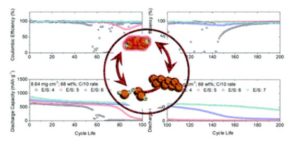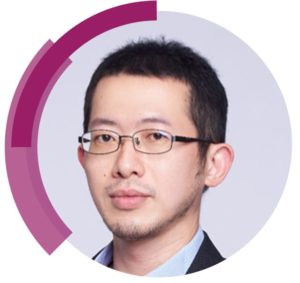Sheng-Heng Chung published his #ChemComm1st article this year. We were excited to hear that Sheng-Heng had chosen our journal for the home of his first independent research article. You can read his urgent research here: Lean-electrolyte lithium–sulfur electrochemical cells with high-loading carbon nanotube/nanofiber–polysulfide cathodes.

Find out more about Sheng-Heng in our interview below.
What are the main areas of research in your lab and what motivated you to take this direction?
We are a newly-established young research group from September 2019. Our group mainly focuses on the electrochemical conversion and storage technology, such as rechargeable batteries, supercapacitors, and fuel cells. In the department of Materials Sciences and Engineering, our team further works on the scientific studies, in terms of the new energy materials and their electrochemistry, and the engineering designs, in terms of the device components and their fabrication processes. The motivation in conducting this research aims to build up an integrated electrochemical conversion and storage system featuring high energy/power density and long operation life.
Can you set this article in a wider context?
Focusing on the future energy-storage technology, our group is now systemically studying the battery electrochemistry and performance development to develop the lithium-sulfur battery with high energy density. The overall goal of this research article is to propose a new concept in designing a lean-electrolyte lithium-sulfur battery featuring a high amount of the active material, which is necessary to realize a high-energy-density lithium-sulfur battery. Moreover, we apply the designed lean-electrolyte lithium-sulfur battery as a testing platform to demonstrate the importance to investigate the discharge/charge efficiency and low-rate performance for a long cycle life to ensure the stabilization of the conversion-type active material with solid and liquid states in the sulfur cathode. With a more reliable lithium-sulfur battery cathode, we will overcome the scientific/technical challenges by realizing high sulfur loading/content with limited excess lithium in a lean electrolyte cell.
What do you hope your lab can achieve in the coming year?
The publication of our group’s first research article in a high-ranking journal, ChemComm, in 2021 is an exciting achievement for a one-year-old research group. Since our group is still at an early stage, our team aims to establish a solid foundation in our electrochemistry and energy materials research. Our group also welcomes the cooperation and extension of our present researches to support the research and design community.
Describe your journey to becoming an independent researcher.
The time during my undergraduate and Masters at National Cheng Kung University (with Professor Hsing-I Hsiang) and from National Tsing Hua University (with Professor Jau-Ho Jean) in Taiwan gave me wonderful friendships with many laboratory equipments. My experience at the University of Texas at Austin (with Professor Arumugam Manthiram) educated me in conducting research experiments and proposals. I had the opportunity to mentor several graduate and undergraduate students in the lab during this time. These two experiences inspire me to become an independent researcher to deal with research facilities and share knowledge to future scientists.
What is the best piece of advice you have ever been given?
Treat every day as the last day.
Why did you choose to publish in ChemComm?
Our group starts from ChemComm because it is a high-impact and renowned journal in our research field in Chemistry and Materials Science. ChemComm provides authors with the fast publication time and good support from the RSC system.
Read Sheng-Heng’s article and others in ChemComm Milestones – First Independent Articles. Follow us on Twitter for more #ChemCommMilestones and #ChemComm1st content.











